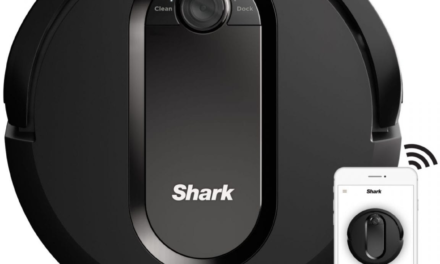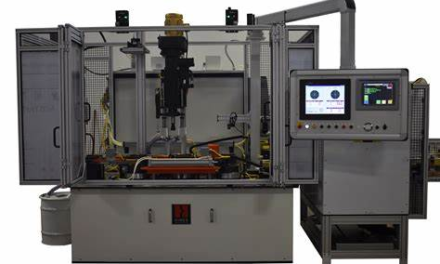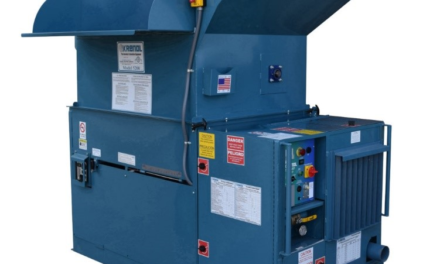compressor machine, as you may be aware of, are very essential for all types of industries and businesses by making it easy to produce compressed air which is used in a variety purposes. These machines are versatile, and they include different types to meet specific requirements in manufacturing, construction uses, automotive (repairing), HVAC. Keep reading to check out the various types of compressor machines, find the answers to those questions and learn more tips about picking up a suitable one according to your needs.
Compressor Machines Explained
Compressor machines work like this: they convert power into potential energy in the form of pressurized air. This energy is then employed to get the facility of tools, machinery, and instrumentality with compressors changing into essential for applicable several industrial and preparation sectors.
Types of Compressor Machines
1. Reciprocating Compressors:
Reciprocating compressors, or piston type air compressor use a cylinder to pump both the intake and outlet. They are seen in automotive shops, construction sites and many small production applications that require intermittent high-pressure!
2. Rotary Screw Compressors:
A rotary screw compressor compresses air using two interlocking helical screws. He is well known for his round the clock large scale construction and manufacturing projects.
3. Centrifugal Compressors:
Centrifugal Compressors also are known as Dynamic compressors use a rotating impeller to add velocity to the air using centrifugal force and converts this increased velocity into pressure. It is used for low-pressure high-volume applications like in HVAC system or large-scale refrigeration units.
4. Axial Compressors:
Jet engines are mostly designed for axial compressors as well power plants. It is employed in high-speed, and large amounts so air compressors that further utilize a series of rotating and stationary blades to create compression.
5. Scroll Compressors:
Spiral scroll compressors have two interleaved spiral scrolls. These two scrolls are fixed together, but one moves in a 300-degree circle around the other-compressing the air. These compressors are high performance, low noise and extensively suitable for HVAC systems as well as refrigeration treatment.
Uses of Compressor Machines
1. Pneumatic Tools:
Compressor machines are used for the vast majority of air powered tools such as air hammers, drills, and impact wrenches. These tools are used in constructing an automotive and also manufacturing for high power output.
2. Manufacturing and Production:
Compressors are used in the manufacturing industry to deliver the appropriate air pressure required for different processes from assembly lines, material handling and packaging. There are also used to motivate the robotic arms and other automated machines.
3. HVAC Systems:
Compressors play an important role in the overall functioning of HVAC systems as they transfer refrigerant between components to help heat, cool and ventilate residential homes or commercial / industrial buildings.
4. Spray Painting:
Compressors are used in spray painting to break down paint into a fine mist, which can be applied smoothly on the surface. The typical examples of the same are automotive painting, furniture finishing, and industrial coating processes.
5. Medical and Dental:
Hospitals depends on compressors to supply clean, dry air for respiratory machines as well surgical tools and dental gear. They are important for patient safety and to maintain the equipment functionality.
Why Use Compressor Devices
1. Versatility:
Apart from these compressor machines, they are widely used in many industrial applications too which proves that it is a challenging and versatile tool.
2. Efficiency:
In industrial and commercial applications a compressor can allow tools to work faster and equipment last longer by ensuring those are running invariable power.
3. Cost-Effective:
Finally, businesses can cut down on energy usage and operational costs by using compressed air to operate tools and machinery. Air tools are common for industrial use because they tend to outlast their electric counterparts, and pneumatic assembly tool is virtually maintenance free aware.
4. Safety:
Compressed air powered pneumatic tools are often used in hazardous environments primarily because they do not generate sparks and on average, they may be less likely to overheat than electric-powered tools.
5. Reliability:
Today, manufacturers produce modern compressor machines that will withstand the test of time and work great in any environment. Maintenance Regular maintenance of oil furnaces can also help to prolong their life and improve efficiency.
Choosing the Best Compressor Machine
1. Determine Your Needs:
Determine the exact activities that you would certainly make use of the compressor on. Take into account details like the exact air pressure required, flow rate and duty cycle.
2. Size and Capacity:
Pick a compressor with tank size and characteristic bounty for your needs. A bigger tank can offer a more regular air provide and decrease the amount of occasions you have to refill.
3. Portability:
Determine whether you need a fixed or portable compressor. Stationary compressors are ideal for larger and more fixed uses, while portable air compressor works best on the job site or infrequently used in a small home task.
4. Power Source:
There are those powered by electricity, gasoline and diesel in the compressor machines. Select the power source that most closely matches your site conditions and resource availability.
5. Noise Level:
A noisy compressor can be an issue in some work environments. Consider quiet models or soundproofing measures.
6. Maintenance Requirements:
Compressor machines also require regular maintenance to keep them working efficiently and prolong their lifecycle. Select a model with readily available replacement parts and service franchises.
Safety Rules for Compressor Machines
1. Read the Manual:
Refer to the owner’s manual and exactly follow what is outlined by the manufacturer when it comes to operating with, taking care of your compressor.
2. Wear Protective Gear:
Wear proper personal protective devices (PPE), consisting of protection glasses, ear security and handwear covers when utilizing your air compressors irrigation systems.
3. Inspect Regularly:
Inspect regularly for signs of wear, leaks or damage. Deal with problems when they come up and ensure nothing needs attention that can lead to accidents or the best functionality of a vehicle.
4. Use Proper Connections:
Make sure hoses fittings and connections are tight for the compressor being used with compatible tools
5. Ventilation:
Use the compressor in a well-ventilated room so that it does not heat up and do gas let out.
Conclusion
There are a variety of applications for which the compressor machine is a versatile, efficient and reliable tool used in various sectors. Regardless of whether you are powering a pneumatic tool, diving air cancellation gear or running mechanical cycles on various scales – understanding the sorts of compressors and how they get utilized will make it simpler to choose your next machine. Prioritise safety, regular maintenance and proper operation measures to enjoy the full compatibility of your compressor machine and extend its life-cycle performance as well.

![compressor machine: Types, Uses & Benefits [Ultimate Guide]](https://techyhealthcare.com/wp-content/uploads/2024/07/Designer-2024-07-10T163722.062-1024x640.png)



